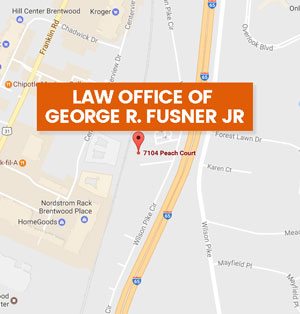It is well established that officers and directors of a corporation owe a fiduciary duty to the corporation and its members or shareholders and, while occupying such a position of trust, must act in the utmost good faith. E.g., State ex rel. Oliver v. Society for Preservation of Common Prayer, 693 S.W.2d 340, 343 (Tenn.1985). In Knox-Tenn Rental Co. v. Jenkins Ins., Inc., 755 S.W.2d 33 (Tenn.1988), our supreme court further observed:
In a broad sense, the directors and officers of a corporation are its agents. While they may not be in a strict sense trustees, it is well established that they occupy a fiduciary, or more exactly a quasi-fiduciary, relation to the corporation and its stockholders. 18B Am.Jur.2d, Corporations, § 1689, p. 541. An agent is a fiduciary with respect to the matters within the scope of his agency. The very relationship implies that the principal has reposed some trust or confidence in the agent and the agent or employee is bound to the exercise of the utmost good faith, loyalty, and honesty toward his principal or employer. 3 Am.Jur.2d Agency, § 210, p. 713. The correct rule on the status of a corporate officer as a fiduciary is found in Hayes v. Schweikart’s Upholstering Co., 402 S.W.2d 472, 483, 55 Tenn.App. 442 (1965), citing from 19 C.J.S., p. 107, as follows:
“A corporate officer must at all times be loyal to his trust and act in good faith and unselfishly toward the corporation and its stockholders, and cannot assume positions in conflict with the interests of the corporation; but the restrictions on their activities growing out of the fiduciary status extend only to such corporate interests as exist at the time or may reasonably be expected in the development of the corporate business. If the officers transcend or abuse their powers, they are as much responsible to their principal as the agent of an individual is to him.”
“A mere employee does not ordinarily occupy a position of trust or confidence toward the corporation unless he is also an agent….” Vol. 19 C.J.S. Corporations § 761b, p. 107.
Knox-Tenn Rental, 755 S.W.2d at 36-37. The Hayes court further held that such “obligation of loyalty” by directors and officers to the corporation “extend[s] up until the very last day of their terms of office.” Hayes v. Schweikart’s Upholstering Co., 402 S.W.2d 472, 482 (Tenn.App.1965).
Heffernan v. Heffernan, Ballinger, Pounds, and Yarbrough, Inc. 1996 WL 512639, 4 (Tenn.Ct.App.) (Tenn.App.,1996)
This court previously has recognized the high degree of loyalty owed by officers to their corporation:
Corporate officers stand in a fiduciary relation to the corporation and while occupying such position they must act in the utmost good faith. They are not permitted to deal with the corporation or its assets for their own private gain and cannot deal for themselves and for the corporation at one and the same time…. If they do so act in violation of their trust they must account for any profits made by use of corporate assets.
Central Bus Lines v. Hamilton Nat’l Bank, 34 Tenn.App. 480, 239 S.W.2d 583, 585 (1951); accord Gillespie v. Branham, 47 Tenn.App. 234, 337 S.W.2d 689, 691-92 (1959). This fiduciary duty also prohibits officers from engaging in a competing business to the detriment of their corporation. *604 Heffernan v. Heffernan, Ballinger, Pounds, & Yarbrough, Inc., No. 02A01-9504-CH-00080, 1996 WL 512639, at *4 (Tenn.App. Sept.11, 1996); 18B Am.Jur.2d Corporations § 1712 (1985).
The foregoing duty extends up until the very last day of the officers’ terms of office. Hayes v. Schweikart’s Upholstering Co., 55 Tenn.App. 442, 402 S.W.2d 472, 482 (1965); accord Heffernan, 1996 WL 512639, at *4. Upon their resignation or termination, however, corporate officers generally are free to compete with their former corporation. See State ex rel. Jones v. Burnett, 760 S.W.2d 629, 632 (Tenn.1988); B & L Corp. v. Thomas & Thorngren, Inc., 917 S.W.2d 674, 679 (Tenn.App.1995); see also Prudential Ins. Co. v. Crouch, 606 F.Supp. 464, 468 (S.D.Ind.1985), aff’d, 796 F.2d 477 (7th Cir.1986); Maryland Metals, Inc. v. Metzner, 282 Md. 31, 382 A.2d 564, 568 (1978); American Window Cleaning Co. v. Cohen, 343 Mass. 195, 178 N.E.2d 5, 9 (1961). As explained by one authority:
The fact that one was once a director or officer of a corporation does not preclude his engaging in a business similar to that conducted by the company. It is said that it is a common occurrence for corporate fiduciaries to resign and form a competing enterprise and that unless restricted by contract, this may be done with complete immunity, because freedom of employment and encouragement of competition generally dictate that such persons can leave their corporation at any time and go into a competing business. It is recognized that in doing so they can use in their own enterprise the experience and knowledge they gained while working for their former corporation, and that they can, at least in the absence of a contract provision to the contrary, solicit the customers of their former corporation for business unless the customer list is itself confidential.
18B Am.Jur.2d Corporations § 1713 (1985); accord Raines v. Toney, 228 Ark. 1170, 313 S.W.2d 802, 809 (1958); Epperly v. E. & P. Brake Bonding, Inc., 169 Ind.App. 224, 348 N.E.2d 75, 83 (1976); Lynch v. Patterson, 701 P.2d 1126, 1135 (Wyo.1985).
Venture Exp., Inc. v. Zilly 973 S.W.2d 602, 603 -604 (Tenn.App.,1998)



